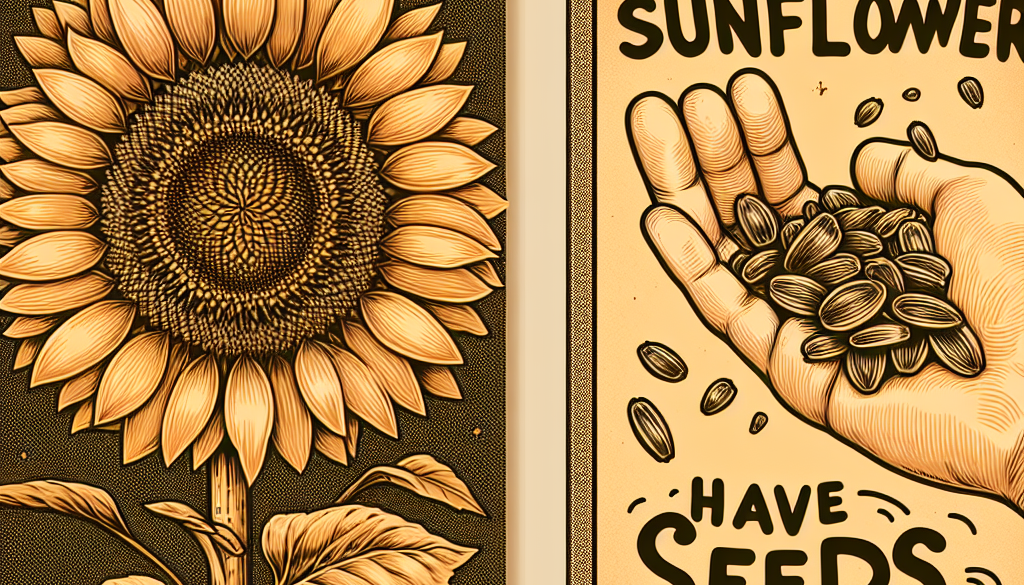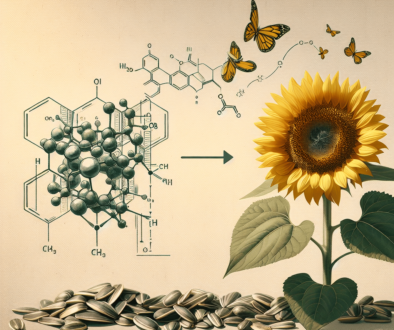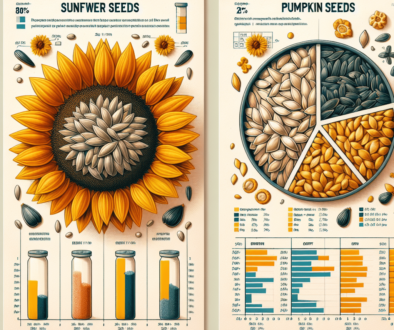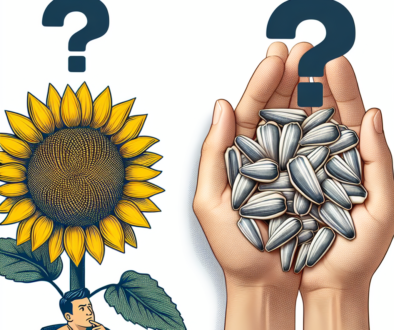Do All Sunflowers Have Seeds You Can Eat?
-
Table of Contents
- Sunflower Seeds: A Nutritious Snack or Just for Show?
- Understanding Sunflower Varieties
- Are All Sunflower Seeds Edible?
- Edible Varieties
- Ornamental Varieties
- Nutritional Benefits of Sunflower Seeds
- Harvesting and Preparing Sunflower Seeds
- Case Studies and Statistics
- Conclusion: A Seed for Every Need
- Discover ETprotein’s Sunflower Seed Protein Products
Sunflower Seeds: A Nutritious Snack or Just for Show?
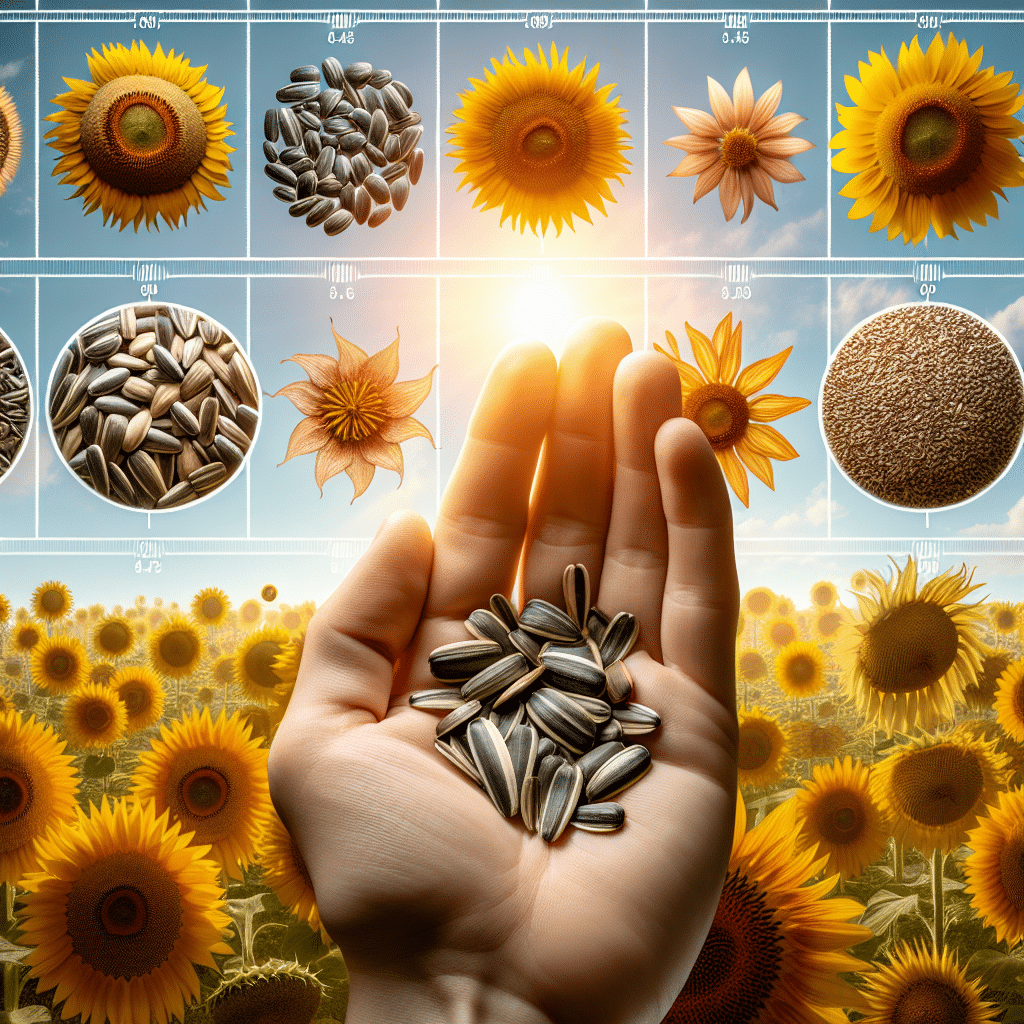
When we think of sunflowers, we often picture the iconic, bright yellow blooms that turn their heads to follow the sun across the sky. These cheerful flowers are not only a delight to the eyes but also a potential source of nutritious seeds. But do all sunflowers produce seeds that are fit for human consumption? This article delves into the world of sunflowers to uncover whether all varieties offer edible seeds and what makes them so beneficial.
Understanding Sunflower Varieties
Sunflowers, known scientifically as Helianthus annuus, come in a multitude of varieties. These can be broadly categorized into two groups: ornamental sunflowers and those cultivated for seed production. Ornamental sunflowers are primarily grown for their aesthetic appeal and may have various flower colors, shapes, and sizes. On the other hand, agricultural sunflower varieties are specifically bred for their seeds, which can be consumed or used to produce sunflower oil.
Are All Sunflower Seeds Edible?
Technically, the seeds of all sunflower plants are edible. However, not all are created equal when it comes to taste, size, or ease of harvesting. The seeds from ornamental varieties tend to be smaller and may have a tougher hull, making them less desirable for snacking. In contrast, seeds from agricultural varieties are larger, have a milder taste, and are easier to crack open, making them the preferred choice for consumption.
Edible Varieties
- Oilseed Sunflowers: These have small, black seeds that are high in oil content and are primarily used for oil extraction.
- Confectionery Sunflowers: These produce the large, striped seeds that are commonly sold as snacks. They are also used in bird feed mixes.
Ornamental Varieties
- While ornamental sunflowers can produce seeds, they are often not as palatable or easy to harvest as those from agricultural varieties.
Nutritional Benefits of Sunflower Seeds
Sunflower seeds are a powerhouse of nutrition, packed with healthy fats, protein, fiber, vitamins, and minerals. Here are some of the key nutritional benefits:
- Rich in Vitamin E, which acts as a powerful antioxidant.
- High in magnesium, which is essential for bone health and energy production.
- Contains selenium, a mineral that supports thyroid function and boosts immunity.
- Provides a good source of plant-based protein.
- Contains healthy monounsaturated and polyunsaturated fats.
Harvesting and Preparing Sunflower Seeds
Harvesting sunflower seeds is a straightforward process, but it requires timing and proper technique. Once the back of the sunflower head turns brown, it’s time to harvest. Covering the heads with mesh or a paper bag can prevent birds from eating the seeds. After cutting the head, you can rub the seeds out by hand or let them dry and fall out naturally.
Preparing sunflower seeds for consumption typically involves dehulling them, which can be done manually or with a machine. The seeds can then be roasted or eaten raw, depending on personal preference.
Case Studies and Statistics
According to the National Sunflower Association, the United States is one of the world’s leading sunflower producers, with millions of acres dedicated to sunflower cultivation. The majority of these sunflowers are grown for their seeds, either for oil production or as a food source.
Case studies have shown that incorporating sunflower seeds into one’s diet can have various health benefits. For instance, a study published in the Journal of Agricultural and Food Chemistry found that the phytosterols present in sunflower seeds can help lower cholesterol levels.
Conclusion: A Seed for Every Need
In conclusion, while all sunflower seeds are technically edible, not all are equally suited for snacking. Agricultural varieties, specifically those bred for confectionery purposes, provide the most enjoyable and nutritious seeds for human consumption. With their impressive nutritional profile, sunflower seeds are a healthy addition to any diet. Whether you’re looking for a tasty snack or a boost of vitamins and minerals, sunflower seeds are a versatile and beneficial choice.
Discover ETprotein’s Sunflower Seed Protein Products
If you’re interested in the health benefits of sunflower seeds, ETprotein offers a range of sunflower seed protein products that are perfect for enhancing your diet. Their sunflower seed protein is characterized by a neutral taste, non-GMO, and allergen-free attributes, making it an excellent choice for those seeking plant-based protein sources. Whether you’re formulating sports nutrition, weight management products, or simply looking to add a nutritious boost to your meals, ETprotein’s sunflower seed protein is an ideal ingredient.
About ETprotein:
ETprotein, a reputable protein and L-(+)-Ergothioneine (EGT) Chinese factory manufacturer and supplier, is renowned for producing, stocking, exporting, and delivering the highest quality organic bulk vegan proteins and L-(+)-Ergothioneine. They include Organic rice protein, clear rice protein, pea protein, clear pea protein, watermelon seed protein, pumpkin seed protein, sunflower seed protein, mung bean protein, peanut protein, and L-(+)-Ergothioneine EGT Pharmaceutical grade, L-(+)-Ergothioneine EGT food grade, L-(+)-Ergothioneine EGT cosmetic grade, L-(+)-Ergothioneine EGT reference grade and L-(+)-Ergothioneine EGT standard. Their offerings, characterized by a neutral taste, non-GMO, allergen-free attributes, with L-(+)-Ergothioneine purity over 98%, 99%, cater to a diverse range of industries. They serve nutraceutical, pharmaceutical, cosmeceutical, veterinary, as well as food and beverage finished product distributors, traders, and manufacturers across Europe, USA, Canada, Australia, Thailand, Japan, Korea, Brazil, and Chile, among others.
ETprotein specialization includes exporting and delivering tailor-made protein powder and finished nutritional supplements. Their extensive product range covers sectors like Food and Beverage, Sports Nutrition, Weight Management, Dietary Supplements, Health and Wellness Products, and Infant Formula, ensuring comprehensive solutions to meet all your protein needs.
As a trusted company by leading global food and beverage brands and Fortune 500 companies, ETprotein reinforces China’s reputation in the global arena. For more information or to sample their products, please contact them and email sales(at)ETprotein.com today.

